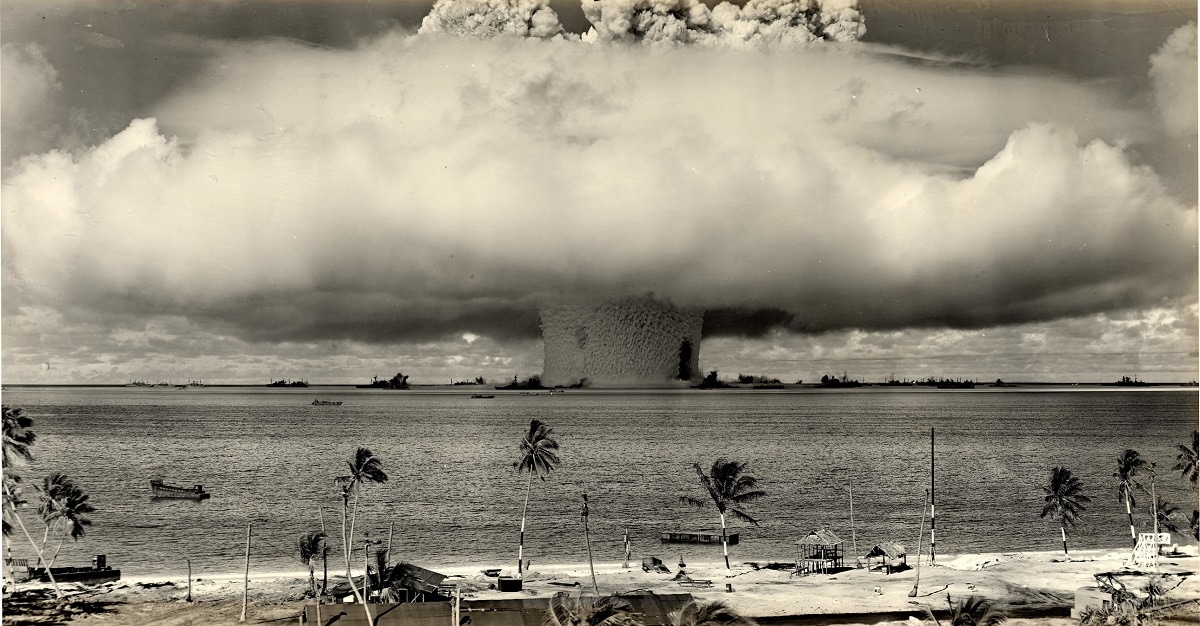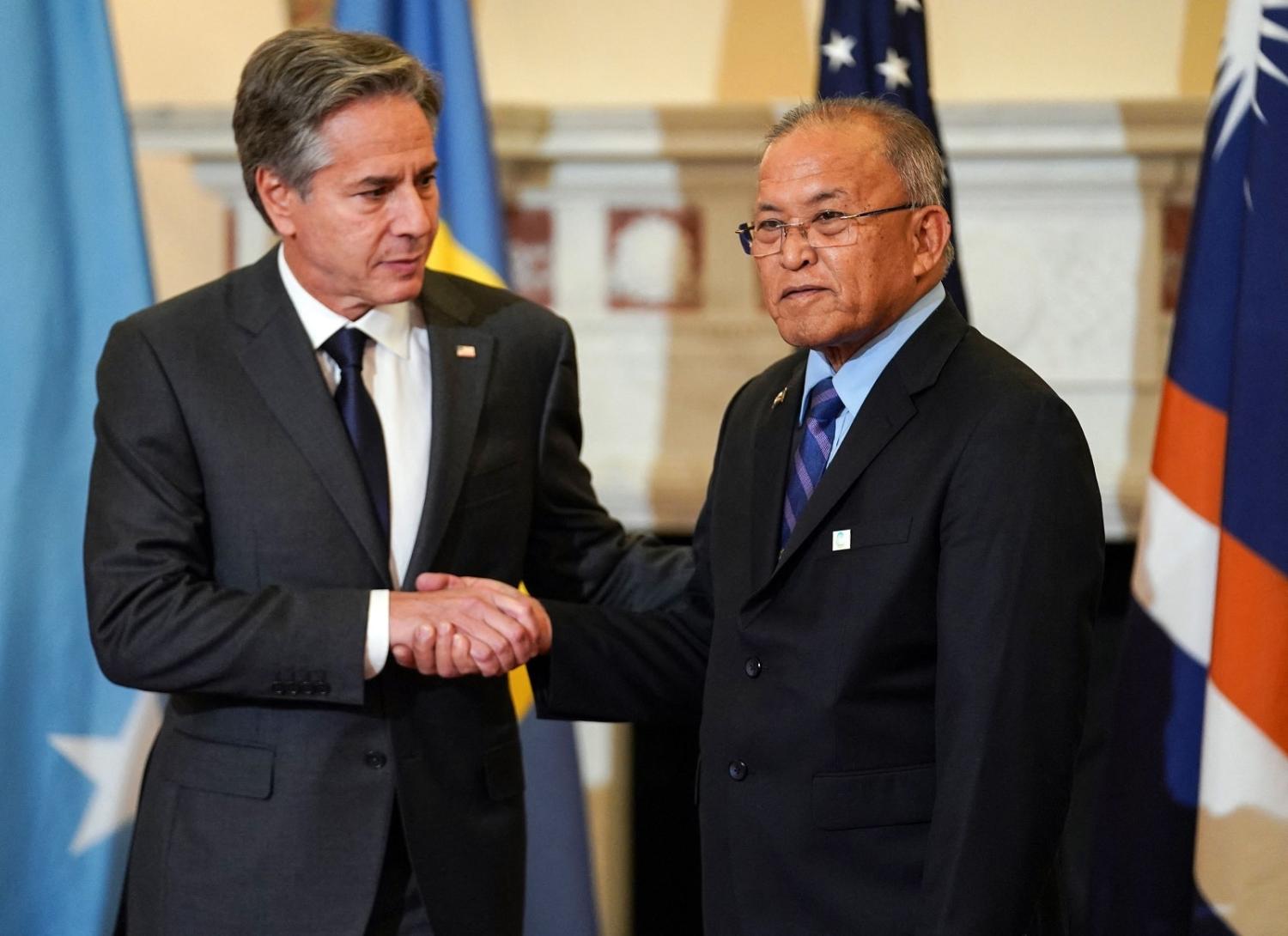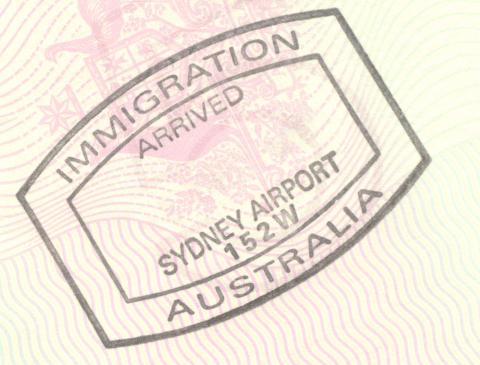Little information has emerged about how negotiations for the renewal of the Compact of Free Association (COFA) between the Republic of the Marshall Islands (RMI) and the United States are progressing. The United States has signed new agreements with the Federated States of Micronesia (FSM) and the Republic of Palau, the two other freely associated states. The rise of China in the region has given the United States renewed impetus to conclude these agreements with more generous funding than the previous two.
The COFA agreements have been at the epicentre of US Pacific engagement for four decades. Beyond the state of Hawai’i and its Pacific territories of Guam, the Commonwealth of the Northern Mariana Islands, and American Samoa, the COFA agreements have been where the lion’s share of US investment in the Pacific has gone since the mid-1980s when the UN Trust Territories became three nations freely associated with the United States. In exchange for exclusive US military access to their territories, COFA governments have been funded and had vital US government services provided while citizens have had access to the United States for work, education and healthcare under a special visa status. In recent years, this status quo has been disrupted by Chinese activity in all three nations, intent on breaking the freely associated arrangements in these highly strategic islands. This geostrategic competition has resulted in a significant shift in US attention to this round of COFA negotiations.
For Australia, maintaining a US presence in the northern Pacific through the COFAs is a vital security interest. The US military presence there is a critical buffer against Chinese expansion from the South China Sea into the Pacific Islands. For Pacific Islanders, peace and regional stability are also paramount and the COFA states all agree (though the RMI has not yet settled on compact details) that a continued US presence meets that challenge.

The current RMI agreement expires on 30 September, the end of the 2023 US fiscal year, with significant implications for RMI’s finances and its citizens, especially the large number resident in the United States. Not only is the clock ticking on negotiating the agreement, but there are other looming complications. One is the ensuing US congressional budget fight – Washington is bracing for a government shutdown. The pressure is rising as the RMI national elections, to be held on 20 November, draw closer and the COFA becomes a central issue. There are also questions about how this third COFA agreement will be approved, whether by plebiscite as the first one was in 1983, or by the Nitijela (parliament) as the second agreement was in 2003. Both will take time.
Two recent Congressional hearings relating to the compacts, on 13 July and 18 July, revealed there is still unfinished and contentious business. New RMI negotiators disowned the memorandum of understanding (MOU) signed in January by then RMI Compact negotiator and Foreign Minister Kitlang Kabua and US Special Envoy for Compact Negotiations Joseph Yun. The cause for the MOU repudiation, according to Jack Ading, the RMI’s new foreign minister, was the ongoing demand for additional nuclear legacy compensation. Members of the two committees urged the RMI negotiators to accept the financial terms of the MOU – US$2.3 billion over 20 years for the RMI compact and US$700 million in RMI trust funds. In an effort to get an update on negotiations, I approached both the RMI’s Washington embassy, which did not respond to requests, and Ambassador Joseph Yun, US Special Presidential Envoy for Compact Negotiations, who agreed to an interview.
Yun noted progress had slowed after the initial agreement. After signing the MOU in January, he explained, “we lost about five or six months of valuable time” due to “issues back home” [in the RMI] that resulted in the change of the chief negotiator and foreign minister. Since then, “it was hard getting restarted again and now we have restarted I hope we will make rapid progress to get to a signature”. When asked about the sticking points for the new negotiators, Yun said that “when the team came back to negotiate, they came back on the basis that the amount of funding was acceptable for the RMI government”. “Since the money issue has been resolved,” Yun said, “the sticking points are really twofold. One is where does the money go to, which sectors? The second point is oversight.”
Yun added that “these issues have been made quite difficult” by revelations in May 2023 about the fate of the KBE Resettlement Trust Fund, which was established to assist Bikini Atoll residents hit hard by nuclear weapons testing. This US$59 million fund was all but depleted in the six years from 2017 after the Department of Interior handed over administration of the perpetual fund to local Bikini government management. Yun said that as a result, the US Congress “are emphasising the importance of oversight” and how the money is spent. “We are still trying to iron out those issues,” Yun said, but on this front, “we have not been able to make as much progress as I would have hoped”.
At the time of writing, Congressional budget wrangling is looking increasingly like it will impact approval of the two expiring compact agreements with the RMI and FSM, along with other vital legislation. If this eventuates, Yun said, “we have some contingencies prepared”, though he would not be drawn on what they were as they are works in progress. Despite the far-right Republican faction driving this government brinksmanship, there is strong bipartisan appreciation of the COFAs and the geopolitical imperatives underlying them. Despite the COFA renewals being “caught up in legislative processes up on the Hill,” Yun said, he was “quite confident that by the end of the year, we will see the enactment of new compacts for all three countries”. With RMI President David Kabua attending the US–Pacific Islands Forum Summit in Washington from 25–26 September, it is hoped that there will be a breakthrough in compact negotiations.

